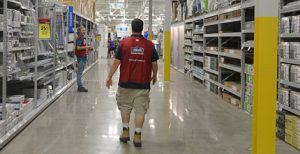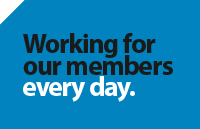 NATIONAL REPORT — Governments at every level are looking at the next two weeks as critical in Canada for suppressing the spread of the COVID-19 virus and to “flatten the curve” of ill patients. That has resulted in more curtailments and shutdowns of business activities. The effects of those shutdowns are being felt by hardware and building supply dealers.
NATIONAL REPORT — Governments at every level are looking at the next two weeks as critical in Canada for suppressing the spread of the COVID-19 virus and to “flatten the curve” of ill patients. That has resulted in more curtailments and shutdowns of business activities. The effects of those shutdowns are being felt by hardware and building supply dealers.
Nationally, 19,774 Canadians had tested positive for COVID-19 as of April 9, according to the Public Health Agency of Canada. In addition, the news is starting to be filled with high profile names being added to the infected list. This week, British Prime Minister Boris Johnson was stricken and ended up in intensive care for three nights before improving enough to return to a regular room at a London hospital. Legendary country folk singer John Prine fell victim to the virus and died April 7.
Governments enhance support for businesses
In an emergency announcement on March 27, the Bank of Canada lowered its trend-setting overnight lending rate by half a percentage point from 0.75 percent to 0.25 percent, the third cut that month. The decrease is aimed at dampening the economic shock caused by the spread of COVID-19. The Bank of Canada’s next interest rate announcement will be on April 15.
The federal government has updated its criteria for support to companies and individuals. The Feds had already introduced a $24 billion Canada Emergency Response Benefit (CERB) for people who’ve lost their jobs, plus a $71 billion wage subsidy program for employers. Now, Prime Minister Justin Trudeau has introduced more flexible eligibility criteria. Companies need only show a 15 percent decline in revenues in March, rather than 30 percent. And now they can measure those revenues against previous months rather than the previous year.
Another plus is the introduction of a full subsidy to employers who apply to the Canada Summer Jobs program to hire students.
Just last week, the Ford government in Ontario took hardware stores off the list of essential services for the next 14 days. Stores must close their doors to customers, while online sales can continue, including curbside pickup. There’s one week left in this restriction, unless it gets extended further.
Large retailers such as Home Depot Canada, Canadian Tire and Lowe’s Canada lined up to comply. They remain open, however, for curbside pickup and continue to offer delivery. Independents had to adjust to meet the new requirements. However, many dealers, not just in Ontario, had already implemented “curbside pickup” as a way to protect staff and maintain physical distancing.
Retailers work hard to support their employees
 Stores across the country will remain open this weekend according to provincial by-laws and their status as essential retailers. Lowe’s Canada announced, however, that all its Lowe’s, RONA and Reno-Depot corporate stores across the country will be closed on Easter Sunday. The company says no hourly associates will lose scheduled hours or have a reduction in pay as a result of the closings.
Stores across the country will remain open this weekend according to provincial by-laws and their status as essential retailers. Lowe’s Canada announced, however, that all its Lowe’s, RONA and Reno-Depot corporate stores across the country will be closed on Easter Sunday. The company says no hourly associates will lose scheduled hours or have a reduction in pay as a result of the closings.
According to a statement from Lowe’s Canada, “Our store associates have worked tirelessly in the past few weeks to support our communities during the COVID-19 pandemic by providing essential products and services. We want to provide them all with a much-deserved day off to rest and spend time home with their families.”
 Likewise, Home Depot Canada has introduced several benefit enhancements to support its associates and enable them to take paid time off when it’s best for them and their families.
Likewise, Home Depot Canada has introduced several benefit enhancements to support its associates and enable them to take paid time off when it’s best for them and their families.
Pascal Houle, CEO of BMR Group, hears similar concerns as he talks with his group’s member-dealers. “Naturally, BMR dealers are concerned about the performance of their business, which will inevitably be affected by this crisis,” he admits. “But what I am hearing from them the most is that their main concern is the health of their employees and their customers.”
At Osoyoos Home Hardware in Osoyoos, B.C., co-owner Frances Sologuk notes that the store remains open given its status as an essential service, but the toughest thing for her is supporting her employees. “The stress on my staff is probably one of the hardest things to witness,” she notes.
As the number of retail staff who stay home increases, other retailers are looking for ways to keep people on the store floor. Loblaw has asked head office people, including executives, to help out in stores as staffing becomes more difficult. According to the National Post, about 400 corporate staff are now contributing by doing shifts at the stores. At Walmart Canada, dozens of head-office staff have stepped up to devote time to serving customers in the stores.




































